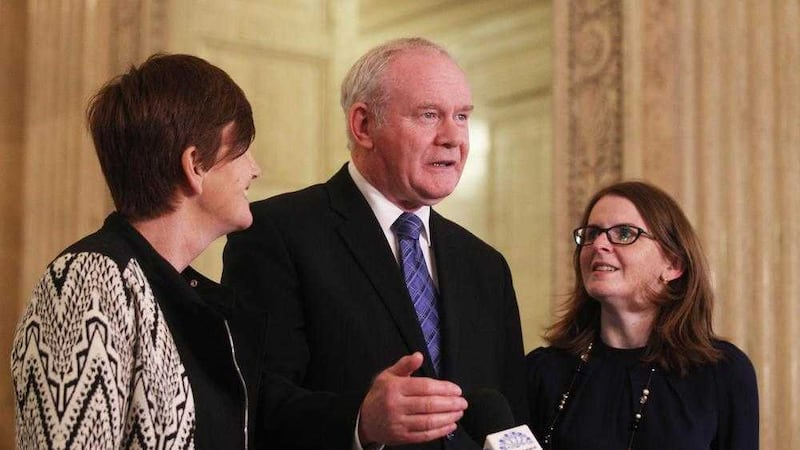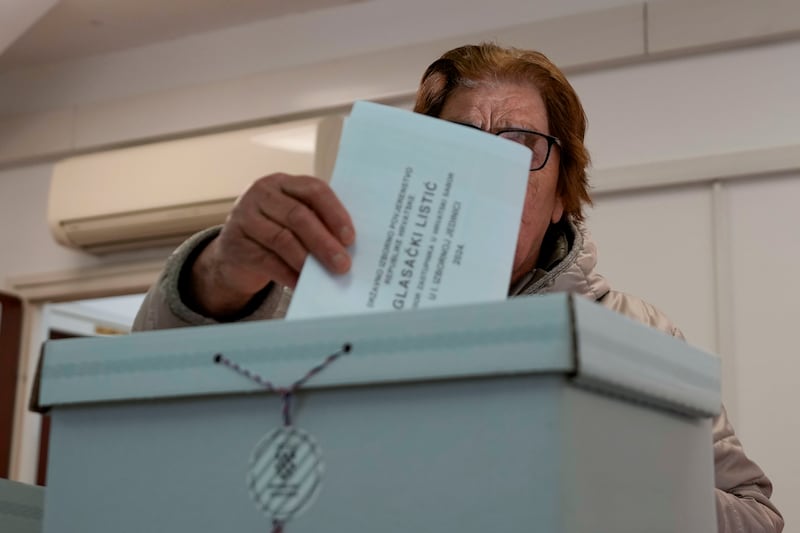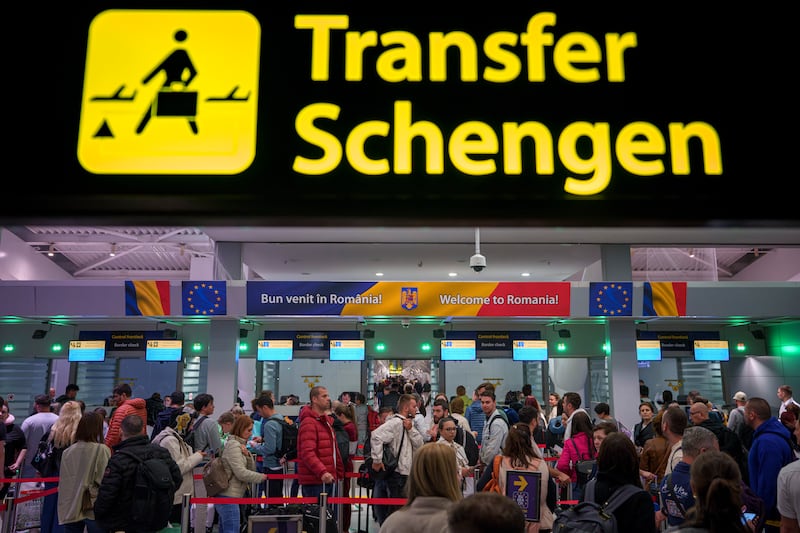LEAVING the European Union is "not a done deal" Deputy First Minister Martin McGuinness has insisted following meetings with the British and Irish governments.
Secretary of State Theresa Villiers, who also met the Republic's foreign affairs minister Charlie Flanagan, has ruled out any special status for the north after the British government withdraws from the EU.
Four of the north's five main parties backed a Remain vote in last week's referendum, with only the DUP favouring a Brexit.
A majority of voters in the north also supported remaining.
Mr McGuinness said the north had been left facing "enormous challenges" in the wake of the referendum vote.
"This is not a done deal. There is still a lot to be played for and we will be asserting the rights of those who voted to remain in Europe," he said.
"The Irish government needs to represent the democratic will of the people of the north and to work in the best interests of all Irish citizens."
The SDLP leader Colum Eastwood MLA also aid the north should not be taken out of the EU "without our consent".
"We will explore all legal and parliamentary avenues to ensure that Northern Ireland maintains its place in Europe," he said.
DUP leader and First Minister Arlene Foster called on Remain campaigners to accept the referendum and get on with the business of getting the "best deal" for Northern Ireland in the exit negotiations.
She said she had no regrets about backing Brexit.
"The campaign is over, the decision has been taken, we now need to move on to create that stability that of course we all want to see here in Northern Ireland and throughout the United Kingdom," she said.
Mrs Foster also claimed a lot of the fears about a UK exit from the EU had been "whipped up".
"It is regrettable that some parties have set their face against the decision of the United Kingdom electorate," she said.
"However, after a while they will realise that we have to get on and we have to do the things that we were elected to do and that is to represent the people of Northern Ireland."
She added: "I am certainly very focused on getting the best deal for Northern Ireland and I hope that others who are engaged, frankly, in campaigns that have already been fought, have already been decided, need to move on and get together and work for all the people of Northern Ireland."
At the close of the meetings, Mr Flanagan said he outlined the importance of everyone working together in the best interests of the people on this island.
"I reiterated the (Irish) government's commitment to the stability and prosperity of Northern Ireland and how we will seek to highlight the need for the EU to take account of the Northern Ireland dimension in upcoming negotiations in order to minimise any negative impact that may arise as a result."
Mr Flanagan insisted the Good Friday Agreement remained the "template" for political relationships on the island and between Ireland and the UK and that had not been diminished by the vote.
He said the Irish government's "immediate strategy" was to sit down with the British government and the Stormont Executive to "urgently discuss how collectively we are together going to protect the gains of the last decades and to prevent the worst effects of a UK departure from the EU".








